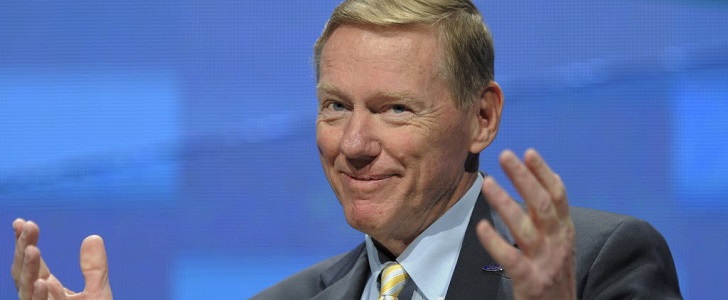When the St Louis Rams lost Sam Bradford to a knee injury, they called on 44-year-old Brett Favre to see if he was interested. He publicly said he was flattered but there was no chance he’d be playing football any time soon. When Microsoft started talking to Ford CEO Alan Mulally about taking over for Steve Ballmer when he departs, Mulally has been very aloof.
Wouldn’t someone who is the heart and soul of his company want to keep investors happy by categorically denying rumors that he might be leaving soon… unless he might actually be leaving soon. This is important to note – the very moment that he is truly not considering it or when they tell him that he’s out of he running, he will say with absolute clarity that there is zero chance that he will be leaving Ford for Microsoft. That is the way things happen for publicly traded companies. Nobody likes uncertainty and when the possibility is at nil, he will not allow the uncertainty to last a moment longer in the eyes of investors.
He’s talking to them. That much is pretty clear.
What’s not as clear is whether or not the rumor might turn into reality in the near future. There are those who say he might be too old; even Ford has him set to retire next year. From a health perspective, he’s not too old at all. He’s more active at 68-years-old than many 30-year-olds.
There are those who say that he has nothing to gain. This is also untrue. Successfully leading two major companies to prosperity – Ford and Boeing – is quite an accomplishment. Leading three major companies, especially with the diversity between the three, would be the stuff of legend. He would be written about for decades if he could bring his magic to Microsoft.
The real question at this point isn’t what Mulally is thinking but rather what Microsoft is thinking. He’s a big name but he has no tech-company credentials. Though Boeing and Ford both rely on cutting edge technology, they are the implementers of the technology, not the creators. Could Steve Jobs have been successful leading Chevrolet? Can Jeff Bezos lead an aeronautics company?
The other big question is how investors would respond. Some would bet heavily on Mulally and some would run for the hills. Microsoft is likely quietly researching the question to anticipate the response – will it be more positive or negative in the realm of investor sentiment?
The last big piece to the puzzle surrounds what Microsoft has on their roadmap. What we know publicly and what they may be planning privately are two different things. Microsoft has been late to the game in many of the technology trends in recent years and they desperately need leadership that can set the trends rather than follow them. Is Mulally that guy? He’s an excellent leader, but is he a visionary?
Until he says no publicly and definitively or until they announce the actual successor, bloggers like me will be speculating. Hopefully, a decision will be made soon because this is actually getting a little tiring.


Leave a Reply